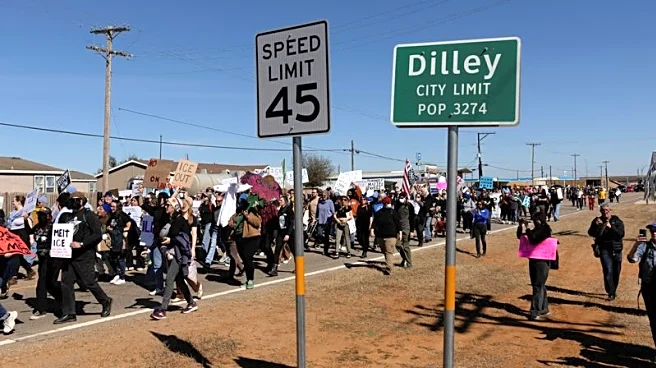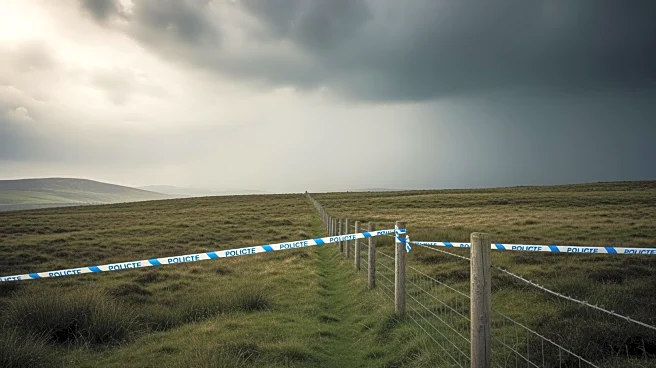What's Happening?
The deployment of federal agents and National Guard troops in Washington D.C. has sparked debate about the motives behind the federal takeover. The majority of these forces are stationed along the National Mall and near monuments, areas already considered secure. Critics argue that the move is more about spectacle than safety, as these areas are not where most violent crimes occur. The presence of troops has become a novelty for tourists but an affront to residents, who feel their city is being occupied at the whim of President Trump. The deployment has raised questions about the misuse of the National Guard, as many troops have full-time jobs and families, and there is no national emergency to justify their presence.
Why It's Important?
The federal takeover of D.C. police and the deployment of the National Guard have significant implications for the city's autonomy and the perception of safety. While crime in D.C. is declining, the presence of federal forces suggests a need for protection from the city itself, rather than addressing actual crime hotspots. This move could undermine local efforts to manage crime and safety, and it highlights the tension between federal and local authorities. The deployment may also affect tourism, as visitors might reconsider trips to D.C. due to the military presence. The situation raises broader questions about federal intervention in local governance and the normalization of military presence in civilian areas.
What's Next?
The future of D.C.'s security measures remains uncertain, as the federal government and local authorities navigate the balance between crime prevention and autonomy. There is a call for more federal resources to support local initiatives, such as increasing judges, prosecutors, and police officers, and enhancing violence intervention programs. The federal government may need to reassess its approach to supporting D.C. without resorting to theatrical displays of force. The ongoing presence of troops could lead to further discussions about the role of federal intervention in local matters and the potential impact on civil liberties.
Beyond the Headlines
The deployment of federal forces in D.C. reflects a broader trend of using military presence for political purposes, reminiscent of past efforts to combat crime with tough rhetoric rather than effective solutions. The situation highlights the challenges of addressing crime rooted in social issues like poverty and mental illness, which cannot be solved by military patrols. The normalization of troops in civilian areas could erode the freedoms represented by national monuments and set a precedent for future federal interventions in local governance.










